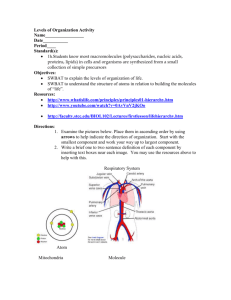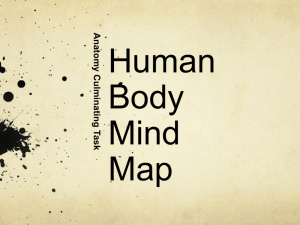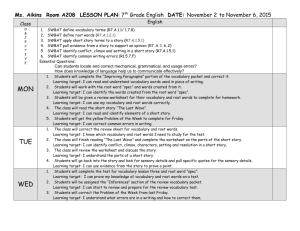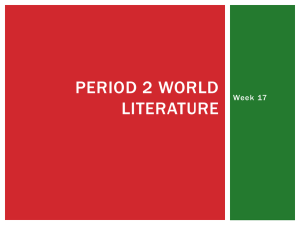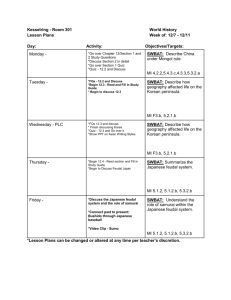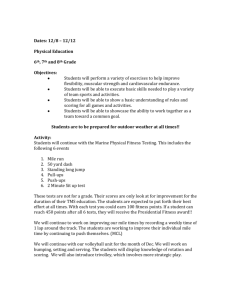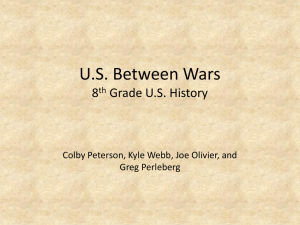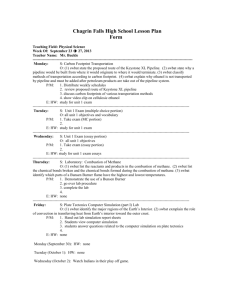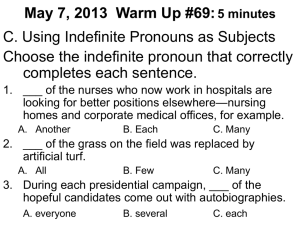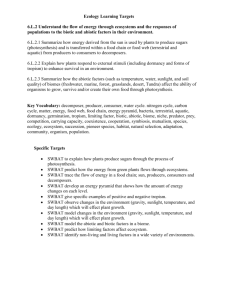1 fish 2 fish
advertisement
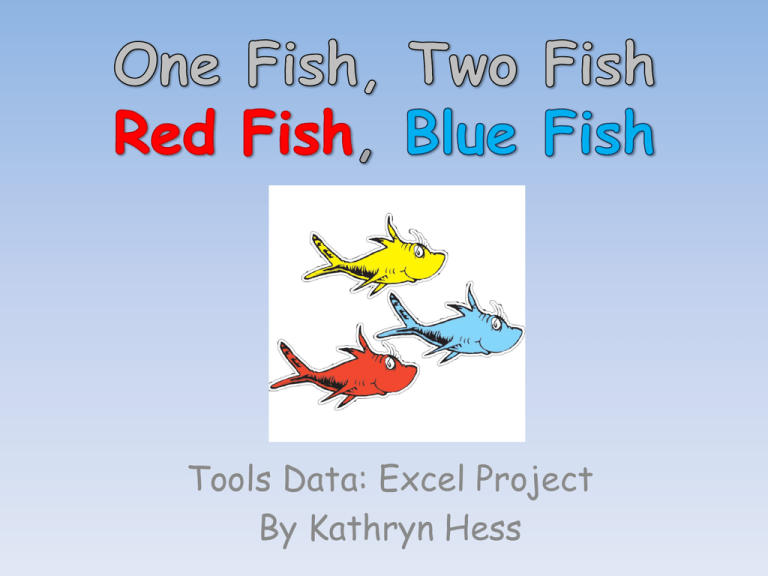
Tools Data: Excel Project By Kathryn Hess Kindergarten 17 general ed. students 11 boys 6 girls Objectives: SWBAT sort objects by color SWBAT count a set of objects SWBAT identify greater and less than SWBAT write numbers 1-10 Standards: K.CC.A.3: Write numbers from 0 to 20. Represent a number of objects with a written numeral 0-20 K.CC.A.1: Count to 100 by ones and by tens. K.CC.C.6: Identify whether the number of objects in one group is greater than, less than, or equal to the number of objects in another group, e.g., by using matching and counting strategies Time: 1 day: 40 min lesson Students will be given a bag of colored Goldfish ® crackers. They will sort them by color and write the total of each color on the given worksheet. After sorting their fish, students will discuss the numbers on their chart (greater than, and less than) with members of their table. Students will highlight their greatest number in yellow and circle the lowest number in pencil. Students will then enter their data on the excel spreadsheet and discuss which color had the greatest number and which color had the least. Students will discuss the results of the graph together as a whole group. Students will be evaluated on their ability to count and enter data correctly, identify the greatest number, and identify the lowest number on their worksheets. They will be given 1 point for each area on the rubric for a total of 3 points. Logical: Students will count and sort objects Interpersonal: Students will work together at their tables and as a whole group to complete the project. Spatial: Students will use the bar graph to identify the groups with the most and least. References Eureka. (n.d.). Retrieved February 9, 2015, from http://www.eurekaschool.com/p-660-dr-seuss-one-fish-twofish-assorted-paper-cut-outs.aspx#.VNjOUy4nTGs Pepperidge Farm® - Cheddar Goldfish. (n.d.). Retrieved February 9, 2015, from http://www.pepperidgefarm.com/ProductDetail. W&L Gender Psychology Lab. (n.d.). Retrieved February 9, 2015, from http://fulcherlab.academic.wlu.edu/thescience-of-the-brain/winter-2014-science-of-the-brainactivities/
